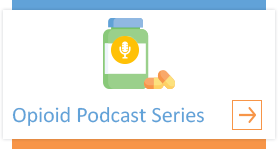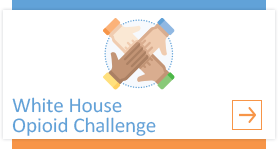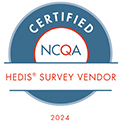Role of the ED Physician in the Treatment of Patients with OUD (Past Session)
Basics & science of addiction and screening & initiating MOUD
Emergency Physicians are active participants in the quest of solutions to identify patients at risk for substance abuse while using reasonable prescribing guidelines to address the legitimate pain reliefs needs of their patients.
Learn how to recognize opioid use disorder, identify withdrawal, and initiate MOUD in the ED.
Session 1 Speakers
- Bobby Redwood, MD, MPH, FACEP, ED Physician, Wisconsin Hospital Association
- Joslin Hubbard, MSW, ED Navigator, St. James, Intermountain Health, Butte, Montana
Role of the Pharmacist in the Treatment of Patients with OUD
Past Session
Medication processes, addressing opioid adverse drug events (ADEs), risk assessment for opioid prescribing
Pharmacists play multiple roles for an effective opioid stewardship program. During this session, you will hear solutions to strengthen your medication process, how pharmacists lead and/or contribute to opioid stewardship program as well as how they address adverse drug events especially for patients with OUD.
Who should attend? All providers are welcome especially those working in the acute care setting.
Speakers
- Kyla Newland, PharmD, Clinical Pharmacist and Account Manager with Mountain Pacific Quality Health
- Megan Penner, PharmD, BCPS, Clinical Assistant Professor, L.S. Skaggs College of Pharmacy; Clinical Pharmacist, Mat Su Regional Medical Center
- Jon Pouliot, MS, PharmD, BCPS, Associate Professor, Pharmacy and Pharmaceutical Sciences, Lipscomb University
PowerPoint Presentation Available Here.
Event Recording Available Here.
Seamlessly Transitioning Patients on MOUD to Nursing Homes
Discharge planning, medication reconciliation, and readmission prevention
Session 3; Part 1: Formal Presentation (PowerPoint and Recording Available Below)
Session 4; Part 2: Panel Discussion (PowerPoint and Recording Available Below)
A well-planned transition of care ensures health care continuity, avoids preventable poor outcomes among patients with OUD, and co-occurring mental health disorders. Challenges and barriers persist especially during the transfer of patients to nursing homes.
During this 2-part webinar, you will learn more from key actors that prepare the patient for discharge and communicate effectively with the receiving facility.
Who should attend? All providers are welcome especially those working in the acute care facilities and nursing homes.
Session 3 Speakers
- Aimee Moulin, MD, Professor of Emergency Medicine with UC Davis Health and Founder & Principal Investigator with CA Bridge
- Jennifer Miranda, PharmD, BCACP, CPP, Pharmacy Case Management Supervisor with Mountain Pacific Quality Health
- Tanya Vadala, PharmD, Senior Pharmacist Medication Safety and Quality Improvement with IPRO
Session 3 Event Materials
Session 4 Speakers
- Rob Accetta, RPh, BCGP, FASCP, Senior Pharmacist, IPRO
- Melissa Chang, MD, MOH, MHS, FACOEM, Associate Professor at the University of Utah & Clinical Director for Comagine Health, Comagine
- Jennifer Massey, PharmD, ADE Technical Advisor, Alliant Health Solutions
- Rose Anna Milanovic, MA, MS, Senior Quality Improvement Facilitator, Telligen
- Jonathon Pouliot, MS, PharmD, BCPH, Associate Professor, Pharmacy and Pharmaceutical Sciences, Lipscomb University, QSource
Session 4 Event Materials
Management of Patients on MOUD During the Nursing Home Stay
Admissions assessment & treatment, addressing stigma, and naloxone training
Part 1 (Past Event)
- Event Recording
- Event Presentation
- Part 1 Speakers and Guest Panelists
- Dr. Jean Storm, DO, CHCQM, Medical Director, Quality Insights
- Rob Accetta, RPh, BCGP, FASCP, Senior Pharmacist, IPRO
- Debra Wright, RN, BSN, RAC-CT, Quality Improvement Specialist, Quality Insights
Part 2 (Past Event)
- Event Recording
- Event Presentation
- Part 1 Speakers and Guest Panelists
- Dr. Jean Storm, DO, CHCQM, Medical Director, Quality Insights
- Jacki Ulishney, PharmD, MHSA, BCPS, Case Management Pharmacist, Mountain Pacific
- Amy Lund Stone, BSN, RN, Project Manager, CA Bridge
- Jennifer Peerbolte, MPA, RN, Program Specialist, Telligen QI Connect
- Debra Wright, RN, BSN, RAC-CT, Quality Improvement Specialist, Quality Insights
Nursing homes play a key role to ensure the continuity of MOUD after discharge from hospital by minimizing the risk of adverse events and promoting access to substance use disorders specialists and treatments as needed. During this 2-part webinar, you will learn more on how to include OUD screening in your admission assessment, provide access to treatment for patients with OUD, and how to recognize and manage a patient who is overdosing.
Sustaining Recovery for Patients on MOUD
Alternatives to Opioids (ALTO), peer support, NA meetings, counseling, and use of technologies
Two Part Series
Part 1: Friday, April 12, 2024 (Past Session)
Part 1 Materials
Part 1 Speakers
- Dr. Ryan Sarver, MD, FAAFP, Adjunct Assistant Professor of Clinical Medicine for Indiana University School of Medicine
- Heather Brandt, Manager, North Dakota Behavioral Health Community Supports
- Jake Reuter, North Dakota Health and Human Services, Administrator
- Lindsay Sarver, Community Health Improvement Strategist
Part 2: Friday, May 10, 2024 (Past Session)
Part 2 Materials
Part 2 Speakers
-
Dr. Clifford Moy, MD, Behavioral Health Medical Director, TMF Health Quality
-
Dr. Bobby Redwood, MD, MPH, FACEP, Emergency Department (ED) Physician,
Wisconsin Hospital Association
Patients with pain should receive treatment that provides the greatest benefit. Opioids are not the first-line therapy for chronic pain outside of active cancer treatment, palliative care, and end-of-life care. Evidence suggests that nonopioid treatments, including nonopioid medications and nonpharmacological therapies can provide relief to those suffering from chronic pain, and are safer. Patients receiving MOUD must be able to receive concomitantly counseling, along with medical, vocational, educational, and other assessment and treatment services. Providing a “whole-patient” approach to the treatment of substance use disorders can be challenging. This 2-part webinar will present federal, state, and local solutions to ensure a path to sustain recovery. Guest speakers will also share ideas on how to expand and strengthen the community response to the benefit of people with opioid use disorders and the entire community.
Who should attend? All providers and stakeholders are welcome.
Management of Patients on MOUD: Key Takeaways and Series Wrap Up (Past Event)
Join us to hear the key takeaways of this series of webinars.
Who should attend? All providers and stakeholders are welcome.
Event Materials






